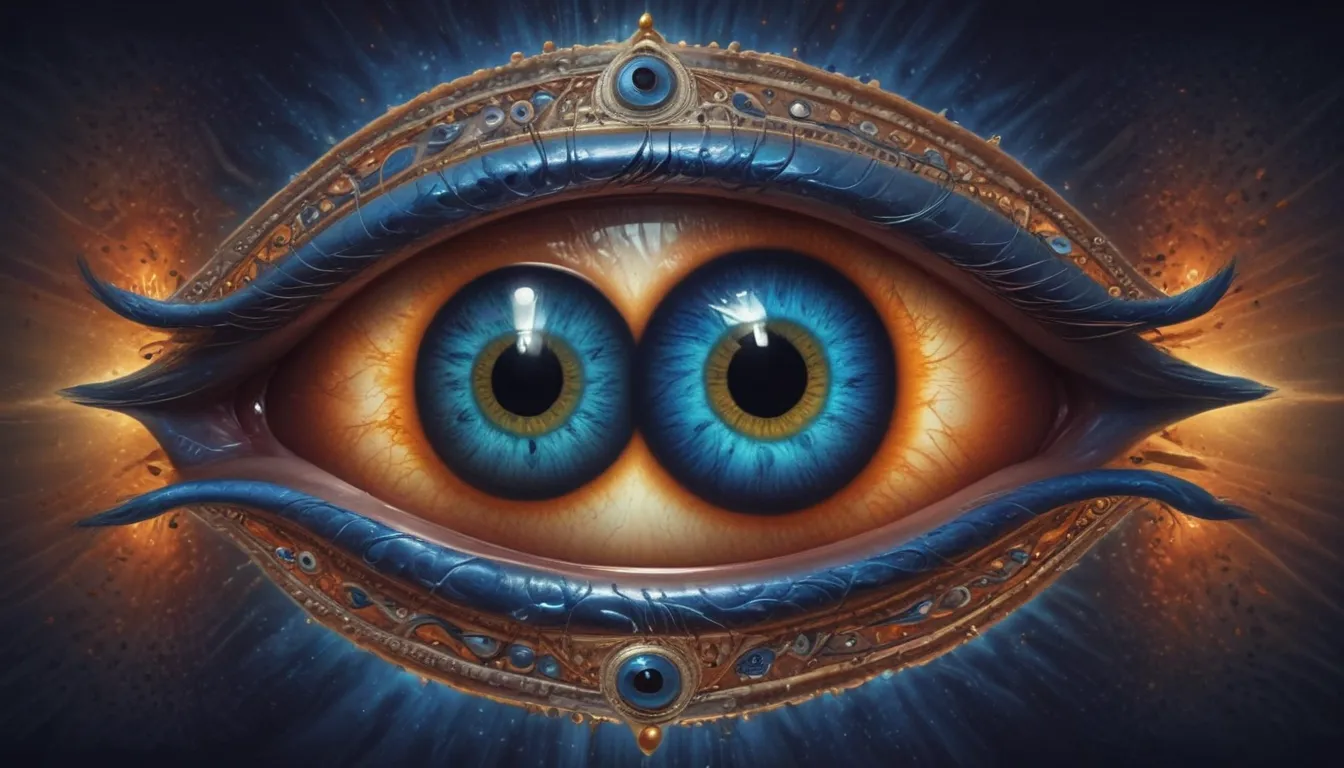
The concept of the evil eye has been a part of various cultures and religions for centuries. It is believed that an evil eye can cause misfortune, illness, or bad luck to someone who receives it unintentionally. This spiritual belief has roots in ancient civilizations such as Egypt, Greece, and Rome, and it continues to be prevalent across the globe today. In this comprehensive guide, we will explore the spiritual meaning of the evil eye, its origins, and how to protect oneself from its negative effects.
What is the Evil Eye?
The evil eye, also known as “mal occhio” in Italian or “nazar boncuku” in Turkish, refers to a superstition that a person can transfer misfortune upon another through envious thoughts or intentions. This belief stems from the idea that certain individuals possess the ability to cause harm with their gaze. The evil eye is often associated with envy and jealousy; however, it can also stem from admiration, as some people may unknowingly project negative energy onto others while expressing compliments.
Origins of the Evil Eye Belief
The belief in the evil eye can be traced back to ancient civilizations such as Egypt, Greece, and Rome. In these societies, amulets and talismans were used to ward off evil spirits and protect individuals from harm. The concept later spread throughout Europe, Asia, Africa, and the Americas, adapting to various local customs and beliefs along the way.
Egypt
In ancient Egyptian mythology, the Eye of Horus (also known as the wedjat eye) represented protection, healing, and divine power. It was believed that wearing or carrying an image of this eye would protect one from harm and bring good luck.
Greece and Rome
The evil eye belief gained prominence in Greece and Rome, where it became associated with the goddess Aphrodite. People would often wear protective amulets featuring her image to shield themselves from envy and ill wishes. In ancient Roman culture, it was common practice to place a small figurine of the deity Fecunditas on one’s property or person as an evil eye deterrent.
Understanding the Spiritual Meaning of Evil Eye
The spiritual meaning of the evil eye transcends cultural boundaries and can be understood in various ways:
- Envy and Jealousy: The most common interpretation of the evil eye is that it represents envy or jealousy towards someone’s success, happiness, or good fortune. This negative energy may be unintentionally projected onto others through a person’s gaze or words.
- Attraction of Misfortune: Some believe that the evil eye can attract misfortune and bad luck to those who receive it. This belief often stems from superstitions surrounding the “power of attraction,” which posits that our thoughts and emotions can influence reality.
- Spiritual Energy Imbalance: In some spiritual traditions, an imbalance of energy within a person’s aura is believed to make them more susceptible to receiving an evil eye. This belief encourages individuals to maintain balance through practices such as meditation and energy healing.
- Curses or Ill Wishes: In certain cultures, the evil eye is seen as a form of intentional curse or ill wish cast upon someone by another person. This interpretation highlights the importance of maintaining positive relationships and avoiding negative thoughts and intentions.
Protecting Yourself from the Evil Eye
Various methods have been developed throughout history to protect oneself from the harmful effects of the evil eye. These practices often involve using symbols, amulets, or incantations that are believed to ward off negative energy:
- Amulets and Charms: Wearing or carrying protective symbols such as the Eye of Horus, Hamsa hand, or blue beads can help shield oneself from the evil eye. In some cultures, it is customary for mothers to create a “protective bracelet” using red threads and knots for their children.
- Incantations and Chants: Reciting specific prayers or phrases believed to have protective powers can help deter the evil eye. For example, in Arabic culture, people may chant “Bismillah al-Rahman al-Rahim” (In the name of God, the Most Gracious, the Most Compassionate) when they feel threatened by negative energy.
- Gestures and Signs: Making certain gestures or signs with the hands is believed to ward off the evil eye in various cultures. For example, Italians may touch their thumb to their index finger and middle finger to form a triangle (known as the “mano cornuto”), while Greeks may cross their fingers or make the sign of the cross.
- Color Therapy: Some cultures associate specific colors with protection against the evil eye. For instance, in Greece, wearing red clothing is believed to offer protection, while blue eye beads are popular in Turkey and other Mediterranean regions.
- Spiritual Cleansing: Performing rituals such as smudging (burning sage or other herbs) or using crystals like obsidian or black tourmaline can help remove negative energy from one’s aura and ward off the evil eye.
Final Thoughts
The spiritual meaning of the evil eye has been an integral part of human culture for thousands of years, serving as both a reminder of the power of our thoughts and a tool for protection against negative forces. By understanding its origins and various interpretations, we can better appreciate this ancient belief system and take steps to safeguard ourselves from harm. Whether through amulets, incantations, or simple gestures, there are countless ways to protect oneself from the evil eye – all of which ultimately promote positivity, well-being, and peace of mind.





